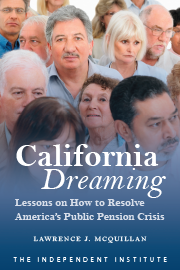America’s health insurance companies sold out for higher profits when they fought for the Affordable Care Act rather than a patient-driven system that would best serve the sick.
Big insurers were omnipresent during the health care negotiations. Their most effective negotiator was Karen Ignagni, CEO of America’s Health Insurance Plans, the industry’s leading lobby. Washingtonian magazine called her one of the top three “Top Guns” of all trade association heads—and she proved it.
In March 2009, Ignagni promised President Barack Obama: “You have our commitment to play, to contribute and to help pass health care reform this year.” And play she did.
Ignagni and AHIP members participated in hundreds of meetings and spent millions of dollars to shape the final bill. Between January 2007 and August 2012, the political action committees of AHIP and the 11 largest health insurance companies gave $10.2 million to federal politicians, according to Federal Election Commission filings.
They received a lot for their time and money.
The Affordable Care Act requires almost every American to buy health insurance or pay a penalty. Nothing was more important to insurers than securing the individual mandate because it will force people to buy their product, many with hefty federal subsidies.
Just as corn farmers support ethanol subsidies, health insurers support insurance subsidies. Private insurers stand to gain at least 18 million new customers through 2022 due to the health care law, according to the Congressional Budget Office.
Not everything in the act helps insurers, but they were savvy enough to make sure the net effect of the law helped their bottom line. Stock prices reveal the positive effect on the long-term profitability of the largest health insurance companies.
For example, during the two years after President Obama signed the health care bill into law in March 2010, Aetna’s share price increased 33 percent, UnitedHealth gained 65 percent, and Humana climbed 76 percent, all outperforming the 14 percent rise in the Standard and Poor’s 500 Index during the period. Health insurance stocks outperformed the market during the run up to the bill’s signing too.
It pays to be one of the few sellers of a product the government is going to force everyone to buy and provides subsidies to help them do it.
Insurers were so pleased with the final bill that a month after Obama signed it, Ignagni said her organization was “strongly committed” to its “successful implementation.” In that cause, AHIP became the act’s marketing partner.
AHIP provided seed money to “Enroll America,” a 50-state implementation effort led by Ron Pollack of Families USA. “We are participating in it,” said AHIP spokesman Robert Zirkelbach. “The goal is to get everyone covered.”
Actually, the primary goal is to force coverage on the young, healthy and subsidized—because that will boost the insurers’ profits the most.
Ignagni is now focused on getting Congress to kill the premium tax because that will increase the price of insurance, encouraging people to pay the penalty and opt out of the law’s requirement to buy insurance. Americans should understand that none of this was written in stone.
Health insurance companies could have fought the health care legislation, but chose instead to sell out the public for the government dole and massive subsidies.
Americans would be better served by a patient-driven system of privately purchased, affordable and portable health insurance with health savings accounts and payment assistance for the poor.
Tax breaks would go to individuals, not employers. This would put more buying power in the hands of patients seeking the best health care at the lowest price.









